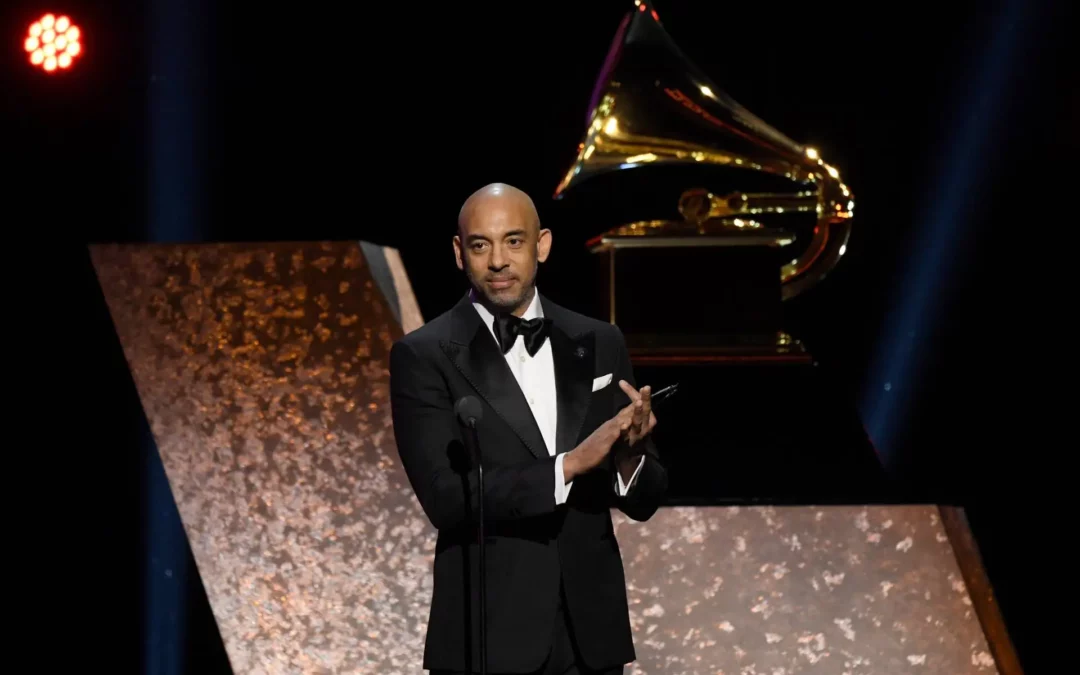Recording Academy head Harvey Mason Jr. has attempted to clarify the AI laws at hand, weeks after the Grammys officially excluded certain artificial intelligence works from receiving honors.
In mid-June, the Recording Academy announced a number of regulation revisions, the most notable of which were the artificial intelligence criteria. Given the far-reaching creative implications of AI, which is being utilized to create original music, power unlicensed soundalike tunes, and more, there was a lot to think about while creating the corresponding Grammy eligibility rules.
As a result, while the main criterion – “A work that contains no human authorship is not eligible in any Categories” – proved obvious enough, several questioned the rest of the Grammys’ AI regulations, which extended to attempts that incorporate AI and the inherent subjectivity thereof.
“The human authorship component of the work submitted must be meaningful and more than de minimis,” states one line from the relevant section of the AI standards, with “de minimis” defined as “as lacking significance or importance; so minor as to merit disregard.”
Related: Paul McCartney Explains The Usage Of Artificial Intelligence On The Final Beatles Song

Harvey Mason Jr. quickly “chatted with GRAMMY.com” to elucidate on the issue (and the other rule changes), indicating that “we are going to allow AI music and content to be submitted” but awarding solely “to human creators who have contributed creatively in the appropriate categories.”
“If there’s an AI voice singing the song or AI instrumentation,” Mason Jr. explained, “we’ll think about it.” However, in a songwriting-based category, it must have been written primarily by a human. The same is true for performance categories: only human performers are eligible for a Grammy.”
As previously stated, the CEO of the Recording Academy has expanded on the regulations and the latter remarks in a new AP interview, expressing that a tune with AI vocals (but human authors) would be eligible for songwriting Grammys but not performance prizes.

Related: According To Tony King, The Beatles’ Record Label Apple Was “Mad”
“Conversely, if a song was sung by an actual human in the studio, and they did all of the performing, but AI wrote the lyric or the track, the song would not be eligible in a composition or a songwriting category,” he explained. “As long as the human is contributing in a meaningful way, which to us means more than a de minimis amount, they are and will always be considered for a nomination or a win.”
Interestingly, and in keeping with the previously mentioned potential for subjectivity in “de minimis” judgements, Mason Jr. was noncommittal when asked whether the upcoming “last Beatles record” will be eligible for Grammys, despite reportedly using AI to recreate John Lennon’s voice.
“We’ll see what it turns out to be,” Mason Jr. said. “However, based on the early descriptions I’ve heard, I’d imagine there would be components of the creation that would be absolutely eligible.”

The 66th Grammy Awards nominees will be released on Friday, November 10th, with the event slated for Sunday, February 4th in Los Angeles.
Download The Radiant App To Start Watching!
Web: Watch Now
LGTV™: Download
ROKU™: Download
XBox™: Download
Samsung TV™: Download
Amazon Fire TV™: Download
Android TV™: Download

